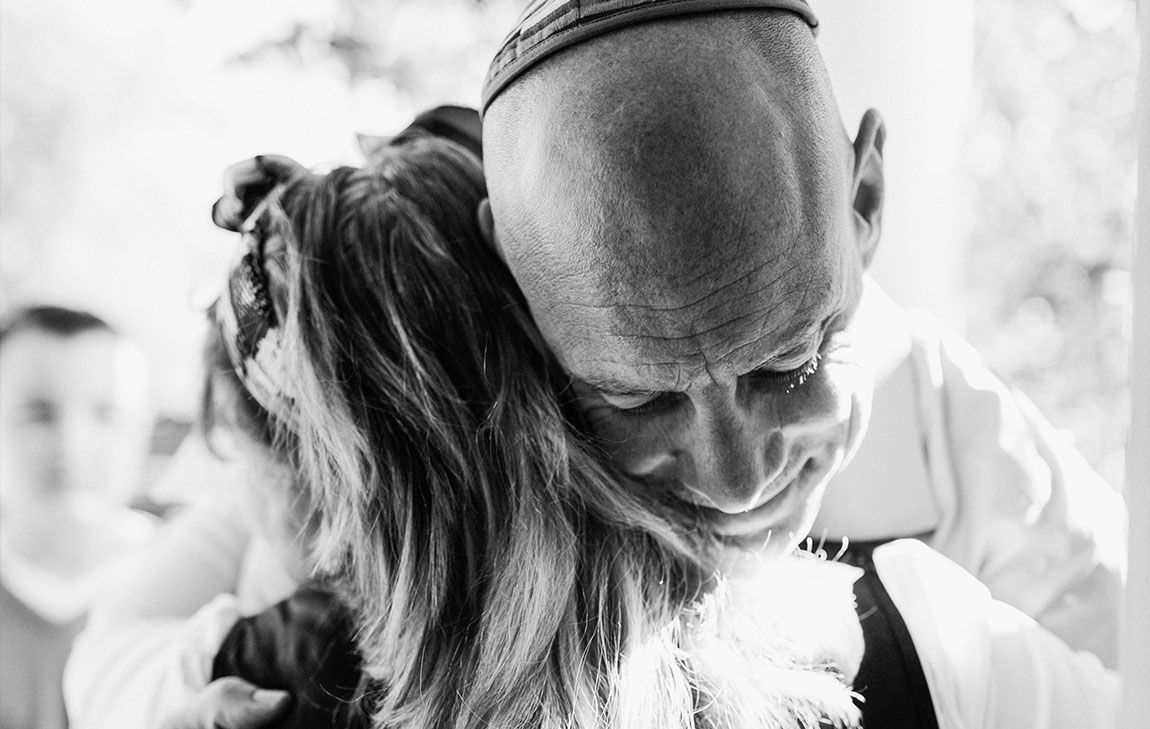Jewish Funeral Customs
Rich in culture and practice, the traditions of the Jewish faith date back thousands of years. Among the most distinct traditions within Judaism are those associated with funeral and burial services. Although there may be differences within the denominations of Judaism, many customs remain the same.

Contacting the Rabbi
One of the first things Jewish families do after the passing of a loved one is contact a rabbi or religious leader at the synagogue they belong to. In the Jewish tradition, funeral and burial services are typically held as soon as possible after a person's death. This is done in accordance with k'vod hamet, which dictates that the dead should be treated with honor and respect.
Usually, the synagogue will assist with arrangements, or the family can contact a funeral home directly. If the funeral cannot take place before Shabbat or a holiday, or if immediate relatives cannot arrive in time from traveling long distances, the funeral can be postponed for a day.
Cleansing of the Body
Under Jewish law, the body of the deceased must be properly prepared by members of the Chevra Kadisha, a sacred burial society associated with the synagogue. According to this custom, called tahara, male members of the burial society prepare and cleanse the body of males and females do so for females.
Once this is complete, the deceased is wrapped in the tachrichim, a plain, pure white burial shroud. Reform Jews sometimes choose to bury their loved one in a favorite outfit instead. After the dressing, the body is placed in a casket, which should be simple and made from unfinished wood. Under Jewish law, cremation and embalming are forbidden, although modern practices don’t always adhere to these traditions.
Standing Watch
From the moment of passing, the body is never left unattended. This guarding or watching practice is called shmira, another tradition steeped in honor. The body can be watched by a member of the Chevra Kadisha, a family member, or someone from the funeral home. This person may recite psalms, also known as Tehillim, pray, or meditate.
This practice ends when it comes time to hold the funeral. Just before the funeral service, the closest family members of the deceased participate in kriah, the act of tearing a piece of clothing or a black ribbon attached to their clothing as a symbol of their grief.
Jewish Funerals
Jewish funerals are typically simple and brief, lasting about 15 minutes. Mourners are expected to dress in modest, dark-colored clothing. Regardless of faith, all men are asked to wear a yarmulke, or skullcap. Women may be asked to wear a scarf or lace head covering. During the ceremony, psalms are recited, followed by a eulogy and El Maleh Rachamim, a plea that the soul of the departed be granted proper rest.
Once the ceremony has concluded, the casket is taken from the room by Chevra Kadisha members or family, and mourners follow behind to the burial procession. It’s uncommon to see flowers as decoration or hear music at Jewish funerals as those typically are symbolic of celebrations, and a funeral is for mourning. However, some modern funerals do incorporate personalized elements such as special songs or favorite flowers.
Burial and Mourning
At the gravesite, the pallbearers carry the casket to the final resting place, pausing seven times to show hesitation to remove the presence of the deceased. During the brief service, a rabbi will recite psalms and prayers before family and close friends cover the lowered casket with handfuls of dirt. They will then wash their hands and leave to begin sitting shiva.
Shiva is a seven-day mourning period when the family remains at the home of the deceased. A candle is lit and remains lit during those seven days. All mirrors in the home are covered to remind mourners to focus on the memory of their loved one rather than on themselves. Although it isn’t considered appropriate to send flowers to the family to express condolences, during shiva, members of the Jewish community, along with extended family and friends, make a Shiva call, which is the appropriate way to pay respects to the family and support them in their time of grief.
After Shiva ends, the immediate family transitions into their next mourning practice, called sheloshim, which lasts 30 days. The family typically resumes their normal daily practices quietly during this time, avoiding celebratory outings and entertainment. After sheloshim, an 11-month-long mourning period called shnat ha-evel continues for the children of the deceased.
How Horan & McConaty Can Help
Although the traditions of a traditional Jewish funeral are long-established customs, families experiencing loss may still have questions. Like all families, support and assistance is still needed during this difficult time. We believe each family’s journey is unique, regardless of their faith. The process of grief is a deeply human experience that our team treats with compassion, dignity and respect.
Our priority is to listen to a family’s needs, traditions, and wishes to honor the life and faith of a loved one. The team at Horan & McConaty can answer any questions you may have about faith-based or secular funeral services. Call us day or night at (303) 745-4418.



